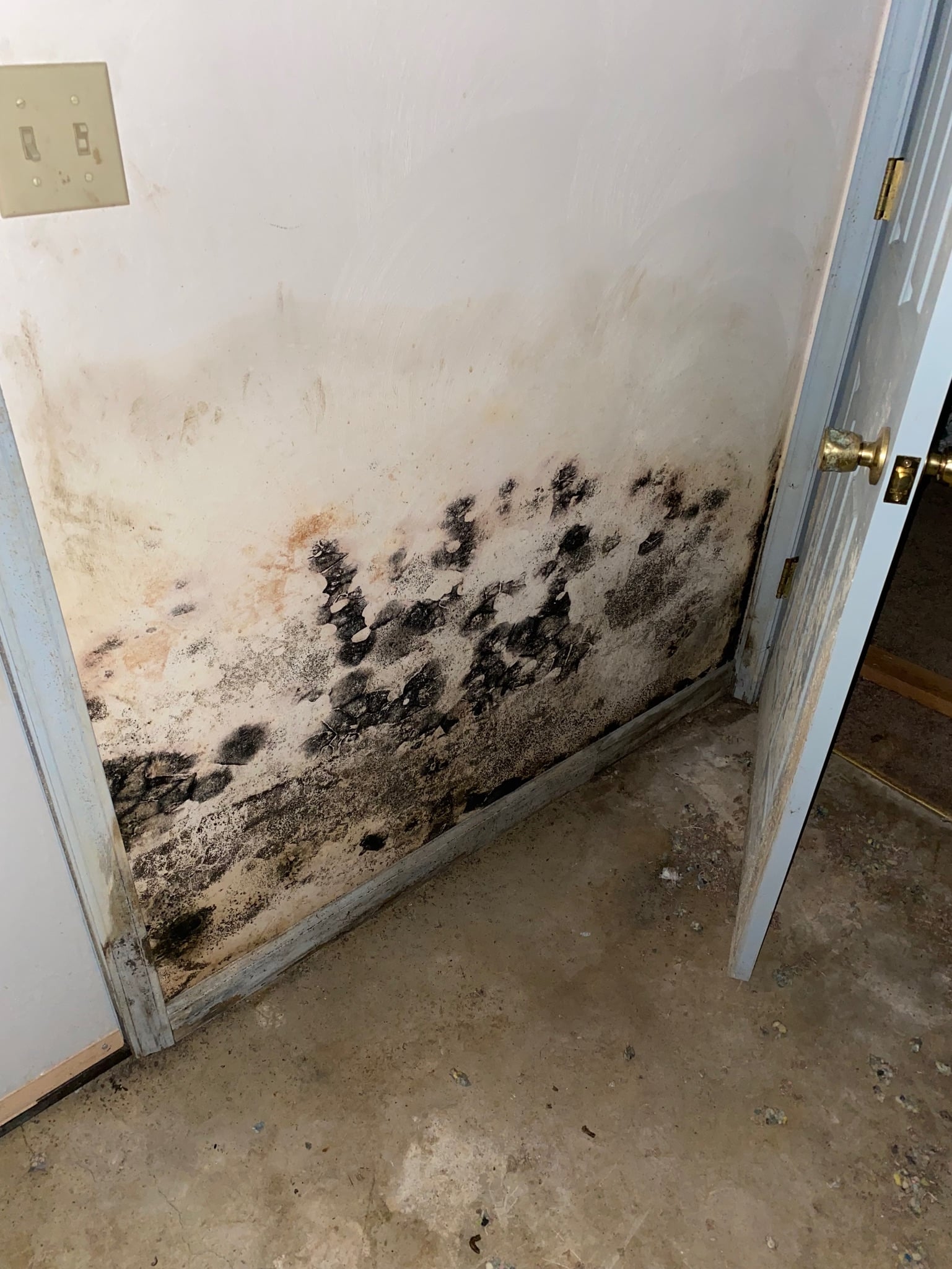
You’re considering vinyl waterproof flooring for your basement, aren’t you? With prices around $2 per square foot, it seems like a cost-effective choice, but what about the additional costs? Sheet vinyl, vinyl planks, installation, and prep work all come with their own price tags. Cost is more than just the price per square foot. So, is vinyl still a wallet-friendly option when compared to hardwood and ceramic tiles? Let’s dig deeper into the true cost of vinyl waterproof flooring for basements.
Key Takeaways
- Vinyl waterproof flooring costs approximately $2 per sq. ft., making it a cost-effective choice for basements.
- Labor rates and installation techniques can impact the overall cost of vinyl flooring.
- High-quality vinyl, though initially more costly, offers long-term savings due to its durability and longevity.
- Material and installation costs may vary based on location, size of the area, and complexity of the installation.
- Comparing vinyl flooring costs with other types like laminate, hardwood, and ceramic tiles shows its budget-friendly nature.
Understanding Vinyl Waterproof Flooring
Exploring the world of vinyl waterproof flooring can be exciting, especially when you’re considering it for your basement. This type of flooring offers a lot more than just an attractive appearance.
You’re looking at a product known for its vinyl durability and moisture resistance – which are key when dealing with a space like your basement that can be prone to dampness and water damage.
Vinyl durability is one of the main reasons why homeowners like you are drawn to this type of flooring. It’s built to withstand heavy foot traffic, kids’ play, and even your pets’ antics. It doesn’t scratch or dent easily, ensuring that it maintains its look for years to come.
Its moisture resistance is another big plus. Basements can sometimes be humid, and moisture can seep into your flooring. Vinyl waterproof flooring is designed to effectively repel water, preventing it from causing damage.
That’s why it’s a smart choice for areas with potential water issues.
Benefits of Vinyl Flooring
Beyond just durability and moisture resistance, vinyl flooring offers a host of other benefits that make it a top choice for basement renovations.
It’s a game changer when it comes to design versatility. You’re not limited to a single pattern or color. Want the look of hardwood but not the upkeep? Vinyl’s got you covered. Fancy the cool elegance of stone tiles? There’s a vinyl for that. You can even find patterns mimicking ceramic tiles or stained concrete. The sky’s the limit, letting you tailor your basement to your specific taste.
But it’s not just about appearances. The comfort levels vinyl flooring provides are second to none. It’s softer underfoot compared to other hard surface flooring, reducing fatigue if you’re standing for extended periods. Plus, it tends to stay warmer in winter, a bonus if your basement is prone to the chills.
Moreover, vinyl is a cinch to clean and maintain. Spills wipe up easily, and it requires no special care. Just regular sweeping and mopping will keep it looking great for years.
Comparing Vinyl and Other Flooring Types
Now, let’s compare vinyl flooring with other types like laminate and hardwood.
You might be curious about how vinyl holds up against these options regarding durability, aesthetics, and cost.
We’ll also touch on the expenses you could face if you go for ceramic tiles.
Vinyl Vs. Laminate Flooring
When it comes to choosing the right flooring for your basement, two popular options stand out: vinyl and laminate. Both materials have their strengths, but it’s important to evaluate which one aligns with your needs and preferences.
Vinyl’s foremost strength lies in its durability. This flooring type can withstand high traffic, pets, and kids without showing significant wear. It’s also water-resistant, making it an ideal choice for basements that may experience moisture issues.
You’ll find that vinyl is a practical, long-lasting solution for your basement flooring needs.
On the other hand, laminate is well-regarded for its aesthetics. It can mimic the look of many types of wood and stone, offering a wide range of design possibilities.
If you’re after a basement with a high-end look without the high-end price tag, laminate could be your go-to. However, remember it’s not as water-resistant as vinyl.
Hardwood Flooring Comparison
Moving on to hardwood, it’s a classic choice that adds a touch of elegance and warmth to any room.
You’re immediately drawn to its rich aesthetics, aren’t you? Hardwood’s natural grain and color variations create a distinctive and timeless look that’s hard to replicate.
Yet, while hardwood aesthetics are stunning, it’s the hardwood durability that really sets it apart.
Sure, vinyl is tough, but hardwood can last a lifetime if properly cared for. Yes, it may require refinishing over time, but that’s a small price to pay for a floor that can withstand heavy traffic, pets, and children’s play.
However, hardwood’s Achilles’ heel is moisture. Unlike vinyl, it can warp or discolor in damp conditions, making it less suitable for basements.
Plus, it’s typically more expensive than vinyl. Still, many homeowners feel the investment in hardwood is worth it for the beauty and longevity it offers.
Cost of Ceramic Tiles
Diving into the world of ceramic tiles, you’ll find a flooring option that merges elegance with durability. These tiles are a great choice for basements, as they can withstand damp conditions and heavy foot traffic without losing their charm.
But what about the cost? A common misconception is that ceramic tiles are excessively expensive. However, their price often reflects their quality.
Here are some factors affecting ceramic tile costs:
- Tile Quality: Higher end tiles will cost more, but they also offer better ceramic tile durability.
- Tile Size: Larger tiles often have a higher price tag due to the added materials and craftsmanship.
- Installation Costs: Professional installation can increase the overall cost, but it guarantees the job is done right.
- Ceramic Tile Maintenance: Lower maintenance tiles may cost more upfront, but can save you money in the long run.
It’s important to weigh these factors against your budget and needs. You might spend more on tiles now, but remember, with their durability and low maintenance, they’re a worthwhile investment that could save you money in the long haul.
Factors Influencing Vinyl Flooring Costs
Now, let’s take a look at what influences the cost of vinyl flooring.
You’ll find that material and installation costs, the size of your flooring area, and variations in quality and brand all have a significant impact.
Understanding these factors can help you budget for your basement renovation more effectively.
Material and Installation Costs
Understanding the cost factors for vinyl waterproof flooring can help you plan your basement renovation budget more effectively. The material and installation costs are two primary aspects to take into account.
Let’s start with material durability. Not all vinyl flooring is created equal. Higher-quality, more durable vinyl will cost more upfront, but it’s likely to last longer, reducing future replacement costs.
You must also reflect on the installation techniques. Labor-intensive methods can increase your overall expenditure.
Here’s a breakdown of everything you need to keep in mind:
- The quality of the vinyl – thicker, luxury vinyl tiles or planks with enhanced features like extra wear layers will cost more.
- The complexity of the installation – if your basement floor is uneven or requires additional prep work, installation costs may rise.
- The labor cost – skilled installers charge more, but their expertise can save you from costly errors.
- The location – prices can vary based on where you live, with urban areas typically charging more than rural ones.
Balancing these factors can guarantee that your investment in vinyl waterproof flooring is both cost-effective and beneficial for long-term use.
Impact of Flooring Size
Another aspect to ponder is the size of your basement, which directly impacts the cost of vinyl waterproof flooring. The flooring dimensions, particularly the square footage, dictate how much material you’ll need. Naturally, a smaller basement requires less flooring, which means a lower cost.
Whereas a larger basement increases the amount of vinyl needed, boosting costs accordingly.
Think of it this way—you’re not just buying flooring; you’re actually purchasing square footage. That’s why it’s important to calculate the exact size of your basement. Getting a precise measurement helps prevent buying excess material or falling short during installation.
Keep in mind that the price per square foot of vinyl flooring varies, and this can greatly affect your total cost. For example, if vinyl flooring costs $2 per square foot and your basement is 500 square feet, you’re looking at $1,000 just for the flooring.
Now, if your basement is twice that size, the cost doubles.
Quality and Brand Variations
Diving deeper into the cost of vinyl waterproof flooring, it’s crucial to evaluate the influence of quality and brand variations.
You’ll find that not all vinyl flooring is created equal, and these differences can greatly impact the price.
The brand reputation often plays a huge role in the cost. Brands with a strong reputation for quality and durability often command higher prices. In contrast, lesser-known or new brands might offer lower prices but with potential trade-offs in quality assurance.
Consider these factors carefully:
- Brand reputation: Known brands often assure you of quality and long-lasting products but at a higher cost.
- Quality assurance: A company’s warranty and after-sales service can signal the confidence they’ve in their product.
- Thickness: Thicker vinyl flooring usually costs more but can offer better soundproofing and feel more comfortable underfoot.
- Design and aesthetics: Unique or complex designs can also add to the price.
Breakdown of Material Costs
Now that you’ve decided to go with vinyl waterproof flooring for your basement, let’s break down the material costs.
When evaluating these costs, it’s important to make a cost comparison between different material types.
Vinyl waterproof flooring comes in a variety of types, including sheet, tile, and plank. Each has its own cost implications.
Sheet vinyl is typically the least expensive, ranging from $0.50 to $2 per square foot. It’s a single, seamless piece that offers great water resistance.
Vinyl tile, on the other hand, can cost slightly more, from $1 to $5 per square foot. It’s more customizable as you can create unique patterns and designs with different tiles.
Lastly, vinyl planks are the priciest, but they offer the most authentic look. They can mimic the appearance of natural wood or stone, costing between $2 and $7 per square foot.
Installation Costs for Vinyl Flooring
While understanding the material costs is important, let’s not forget the expenses tied to the installation of vinyl flooring.
You’re likely wondering, “What will these costs include?” Well, they’re typically a result of labor rates and the distinct installation techniques used.
The labor rates vary depending on your location and the professional’s level of experience. It’s essential to get multiple quotes to guarantee you’re getting a fair price.
Also, it’s significant that different installation techniques come with varying costs. For instance, click-and-lock vinyl costs less to install compared to glue-down vinyl, due to the differences in labor intensiveness.
Here’s a quick breakdown to help you understand this better:
- Labor rates: Charges per hour or per square foot by the professional installer.
- Installation techniques: The method used to install the vinyl flooring, like click-and-lock or glue-down.
- Additional materials: Cost of any extra materials required for installation.
- Prep work: Any extra work needed to prep your basement floor before installation.
Maintaining Your Vinyl Flooring
Regularly caring for your vinyl flooring can considerably extend its lifespan and maintain its aesthetic appeal. Proper maintenance doesn’t have to be a chore. In fact, it’s relatively simple if you use the right cleaning techniques and take a few protective measures.
For basic cleaning, you’ll want to sweep or vacuum your floors regularly to remove dirt and dust. Avoid using a beater bar vacuum as it can damage the surface of your vinyl.
For a deeper clean, a damp mop with a mild cleaner will suffice. Remember, you’re dealing with waterproof flooring, but that doesn’t mean it’s a good idea to drench it in water.
Protective measures are equally important. Use felt pads under furniture legs to prevent scratching. Avoid dragging heavy furniture across the floor. Instead, lift and place items to avoid any potential damage.
It’s also a good idea to keep your pet’s nails trimmed and to clean up spills promptly.
Long-term Cost Effectiveness
- Vinyl flooring has amazing durability, standing up well against frequent foot traffic, spills, and moisture. This means less frequent replacement, leading to long-term savings.
- The durability comparison between vinyl and other flooring materials is quite favorable. Unlike carpets that wear out or hardwood that can warp, vinyl remains in good condition for many years.
- Vinyl flooring requires minimal maintenance which reduces the costs associated with professional cleaning or special products.
- Finally, should it ever need replacing, vinyl flooring is less labor-intensive to remove and install, reducing the costs of your future renovation projects.
Tips to Save on Vinyl Flooring
To get the most out of your budget for basement renovations, purchasing vinyl flooring doesn’t have to break the bank. There are several budget-friendly options available to you. One such way is through DIY installation. This not only saves you on labor costs but also gives you a sense of personal achievement.
Moreover, you can shop around for sales and discounts. Many companies offer sales during certain periods, which can greatly reduce the cost. Also, consider purchasing in bulk if you have a large area to cover.
Here’s a helpful table to illustrate some budget-saving tips:
| Tips to Save | Description |
|---|---|
| DIY Installation | Save on labor costs by doing it yourself. |
| Sales & Discounts | Look out for sales during certain periods. |
| Bulk Purchasing | Buy in large quantities to get a discount. |
| Budget-friendly Options | Choose more affordable brands or types. |
| Recycled Vinyl | Environmentally friendly and often cheaper. |
Frequently Asked Questions
Can Vinyl Waterproof Flooring Withstand Heavy Furniture or Appliances?
Yes, vinyl waterproof flooring can withstand heavy furniture or appliances.
It’s designed with a high heavy load capacity. But, you should use furniture protectors under larger items to prevent possible damage.
Vinyl flooring is durable; it can handle the pressure of heavy items without showing signs of wear and tear.
It’s a solid choice if you’re looking to install a flooring option that’s both strong and aesthetically pleasing.
How Does Vinyl Flooring React to Temperature Changes in the Basement?
Vinyl flooring handles temperature fluctuations pretty well.
You’ll find it doesn’t expand or contract as much as other materials. However, it’s not completely immune. If your basement’s temperature swings drastically, you might see some minor changes.
Additionally, it’s resistant to basement humidity. So, if you’re worried about moisture damage, you won’t have to stress much with vinyl.
It’s a solid choice for basements prone to dampness and temperature changes.
Is Vinyl Flooring Safe for Children and Pets?
Yes, vinyl flooring is generally safe for both children and pets.
It’s a durable and comfortable option that can withstand your kids’ playtime and your pets’ antics. Additionally, it’s easy to clean, so spills or pet messes aren’t a big worry.
However, you should always choose a high-quality, phthalate-free vinyl to guarantee maximum child safety and pet comfort.
Are There Eco-Friendly Options for Vinyl Waterproof Flooring?
Yes, you’ll find eco-friendly options for vinyl waterproof flooring.
Many brands focus on sustainability benefits, using recycled materials and processes that limit environmental impact.
Some even offer recycling programs for their products at the end of their life cycle.
You’re not only choosing a durable, waterproof option for your basement but also contributing to a greener planet.
Always check the manufacturer’s details to confirm their commitment to eco-friendly practices.
Does Vinyl Waterproof Flooring Come in Various Design and Color Options?
Absolutely, you’ll find vinyl waterproof flooring in an incredible array of design trends and color variety.
Whether you’re into a modern vibe or a classic look, there’s something to suit your taste. You can choose from realistic wood-look designs, chic stone effects or bold, vibrant colors.
It’s an excellent way to personalize your basement and make it truly your own. Don’t limit your imagination; with vinyl flooring, you can have it all.
Conclusion
To sum up, vinyl waterproof flooring for your basement is a cost-effective choice. The price can vary, depending on the material type and installation complexities. However, it’s typically cheaper than hardwood and ceramic tiles. Plus, it offers durability and easy maintenance. With smart shopping and consideration of installation factors, you can make this investment even more budget-friendly. So, when it comes to basement flooring, vinyl is a solid, affordable option.

Seal-tite Basement Waterproofing Co. is a full service basement environment contractor. We carry an A+ Better Business Bureau rating. We repaired over 40,000 homes and structures in Virginia, West Virginia, Tennessee, and North Carolina. We are fully insured and licensed. We have worked in all types of locations, including residential and commercial locations, government agencies, colleges, hospitals, churches, and condo associations.
Seal-tite® offers a lifetime transferable warranty. We carry a Class A Contractor’s License and we are fully insured. Our satisfied customers range from government agencies to businesses, hospitals, colleges, churches, and thousands of homeowners. Your home is probably the single largest investment you will make in your lifetime. Don’t wait, call Seal-tite® to help make your home dry, safe and livable.

